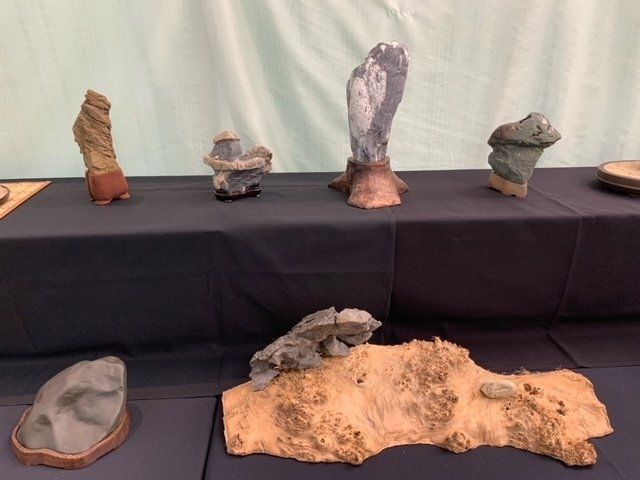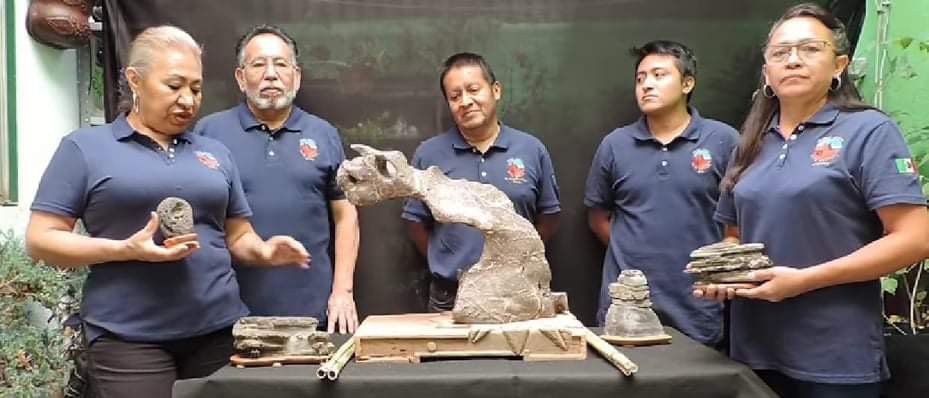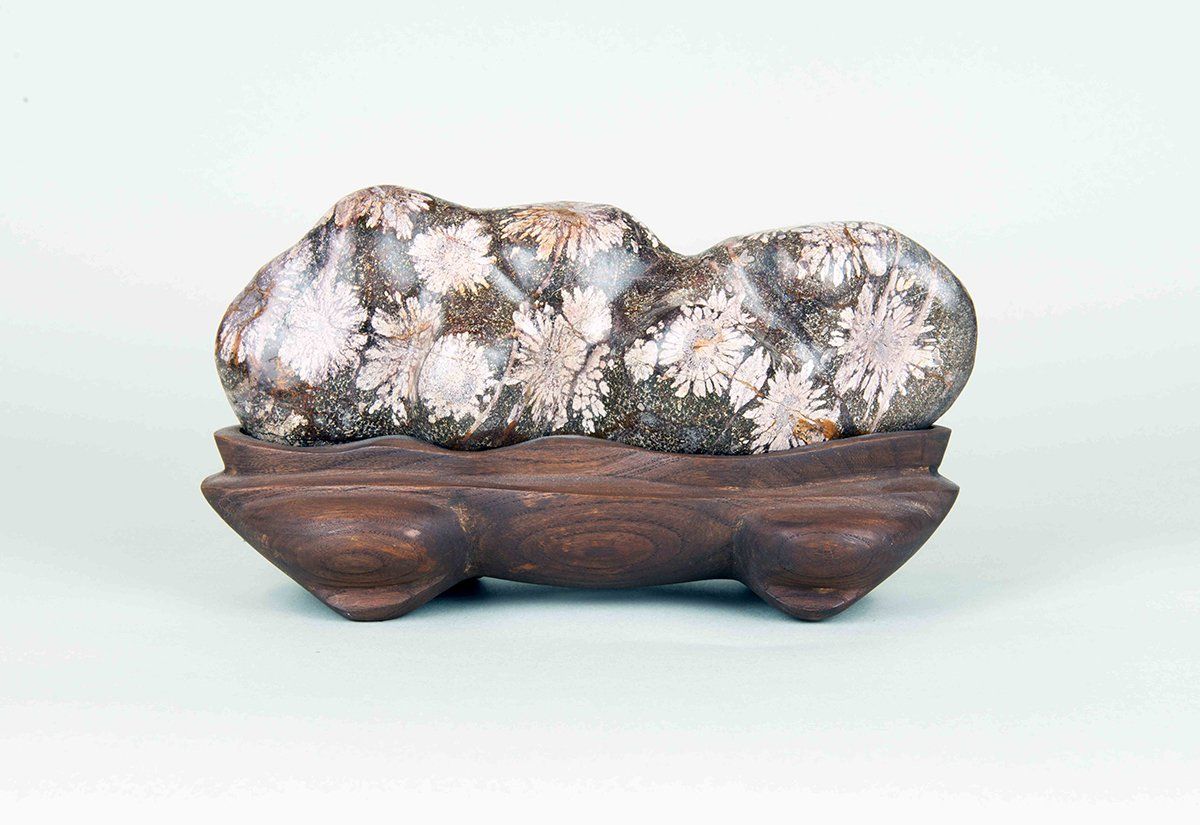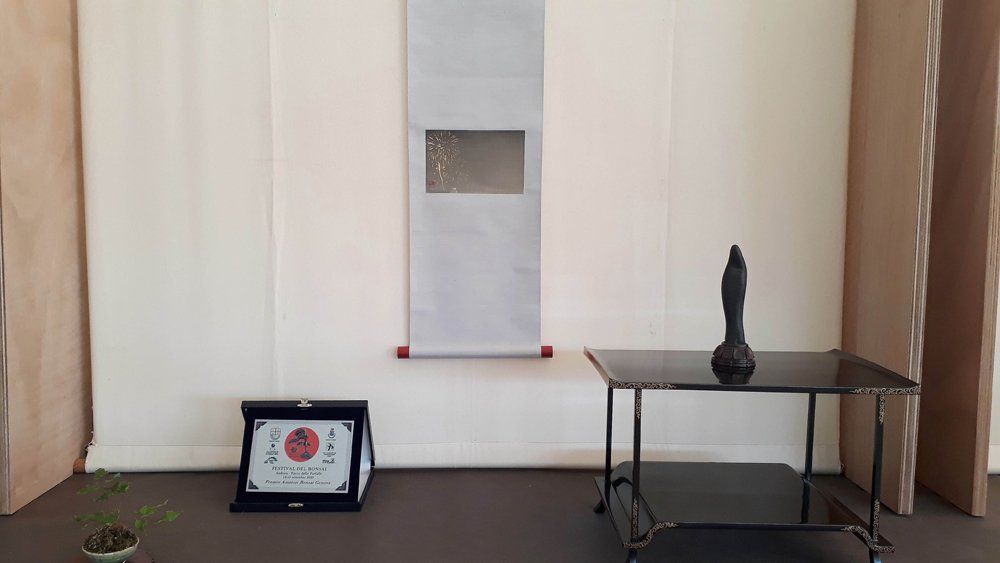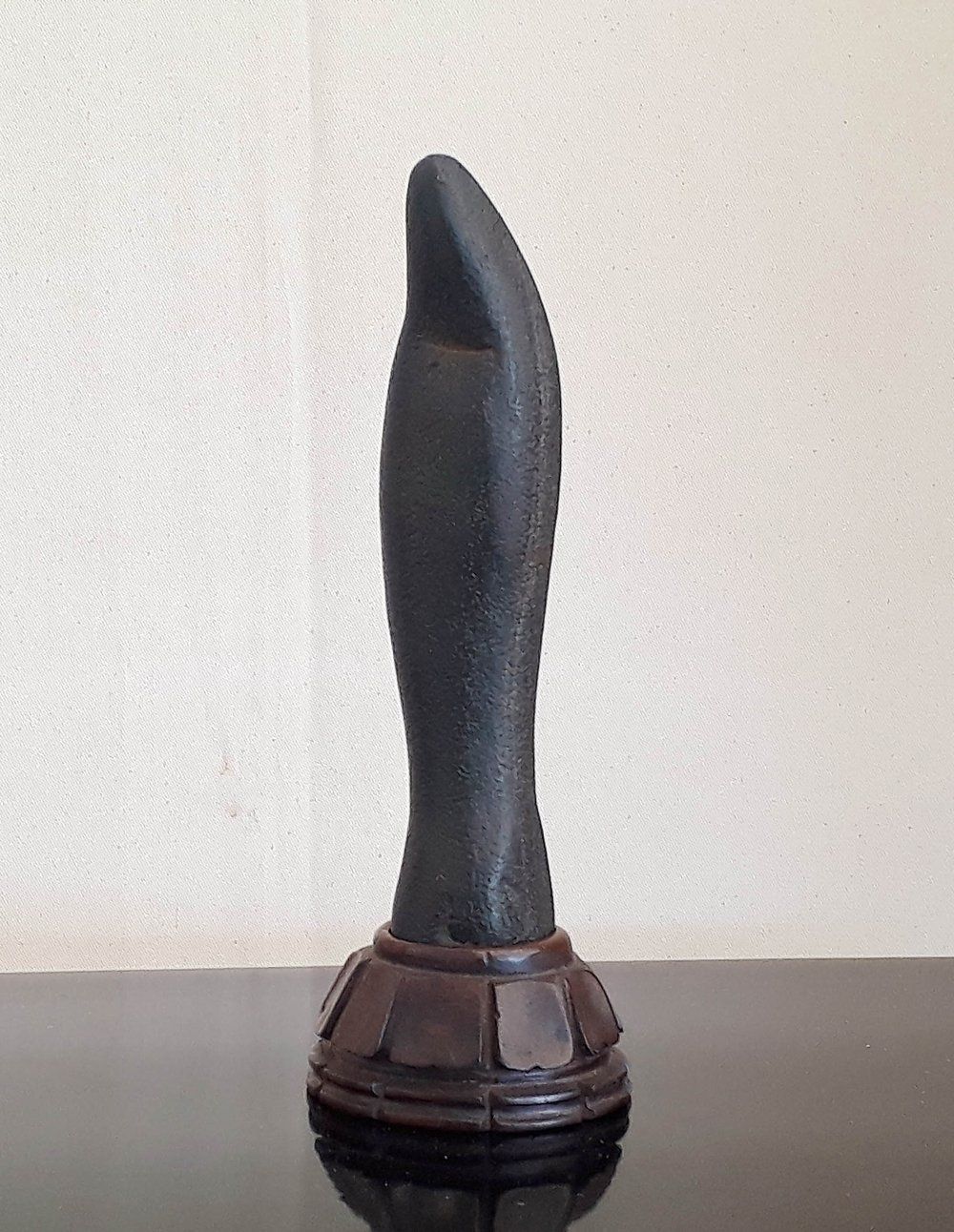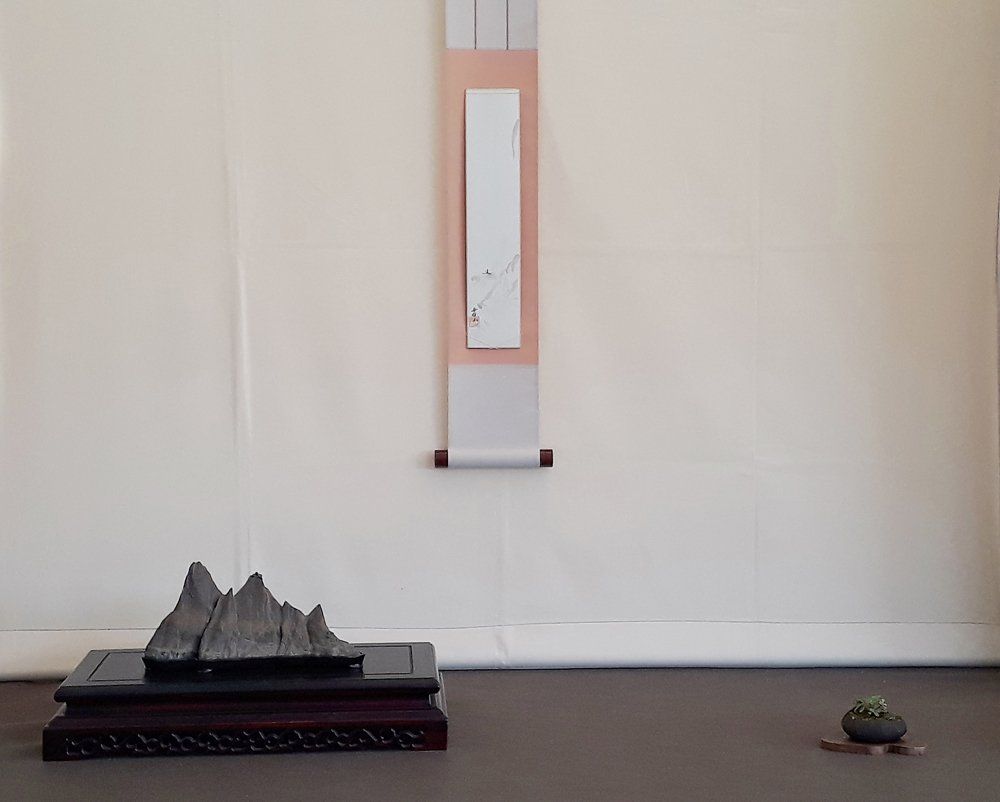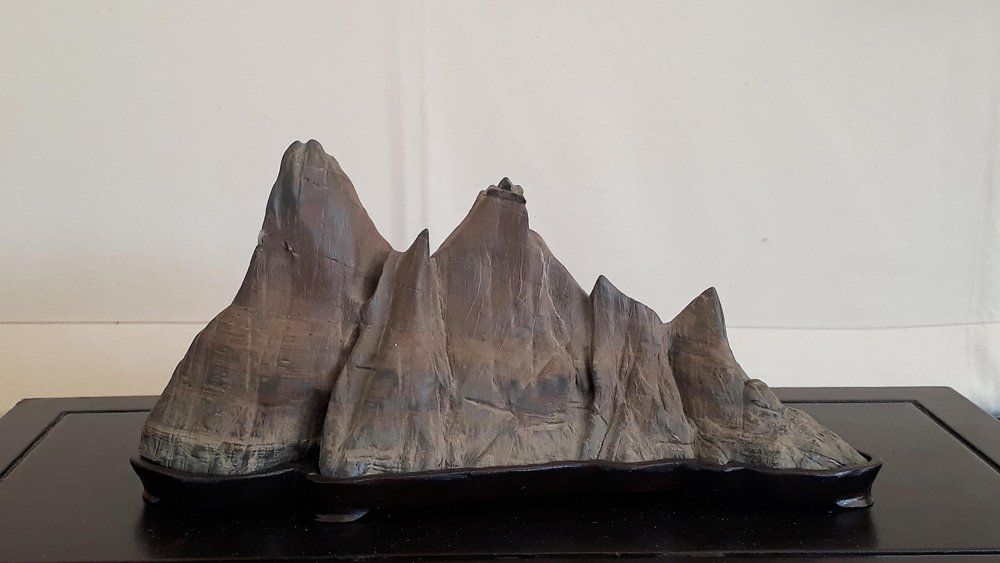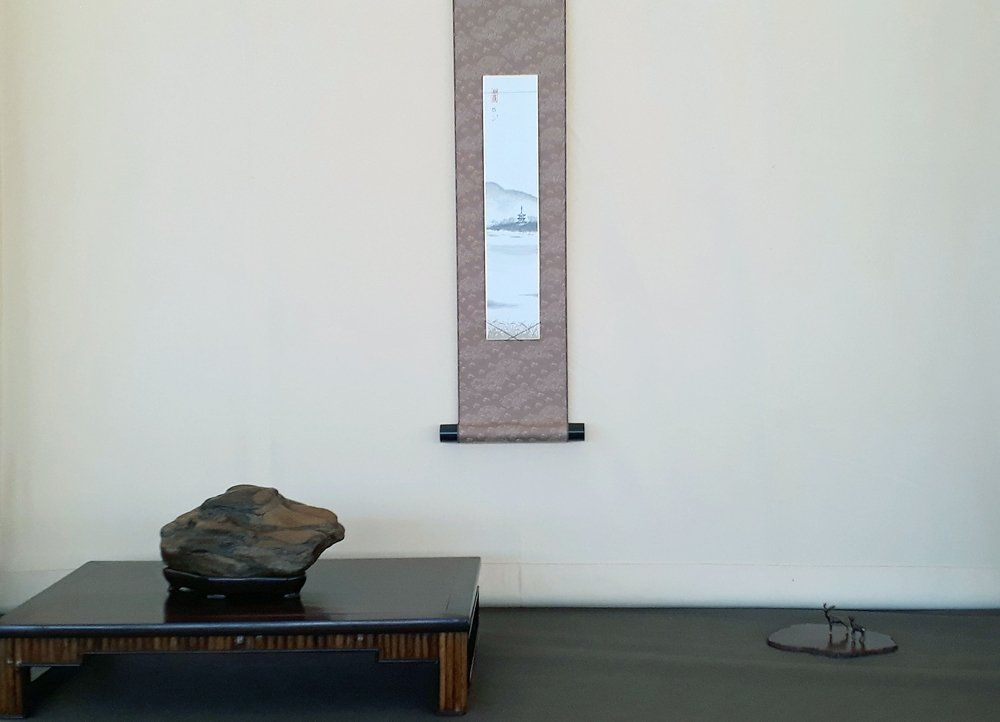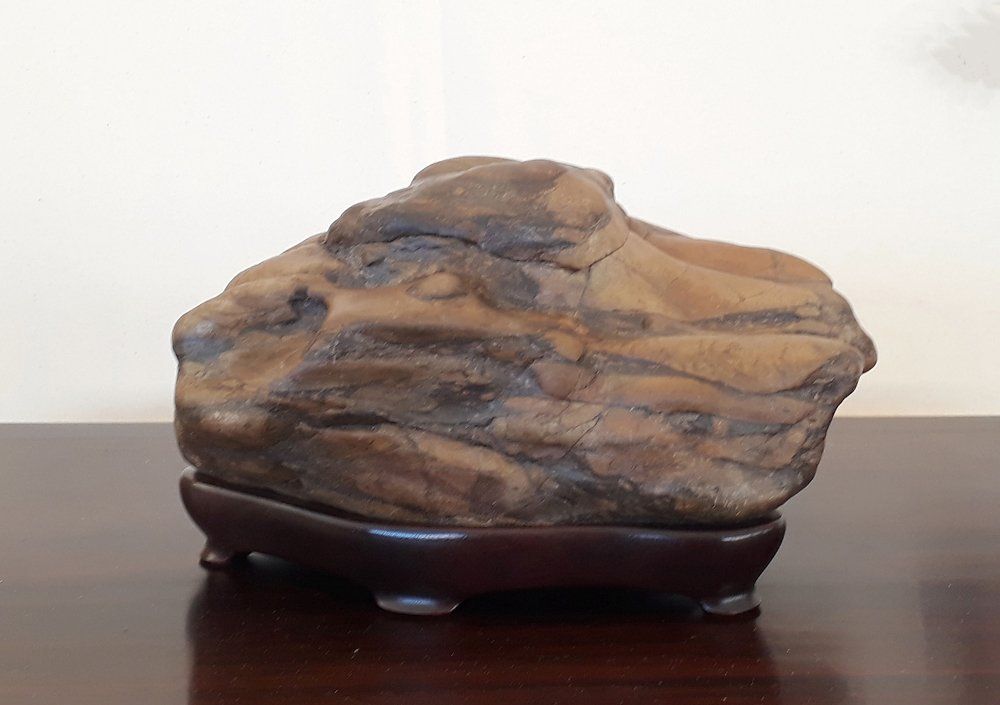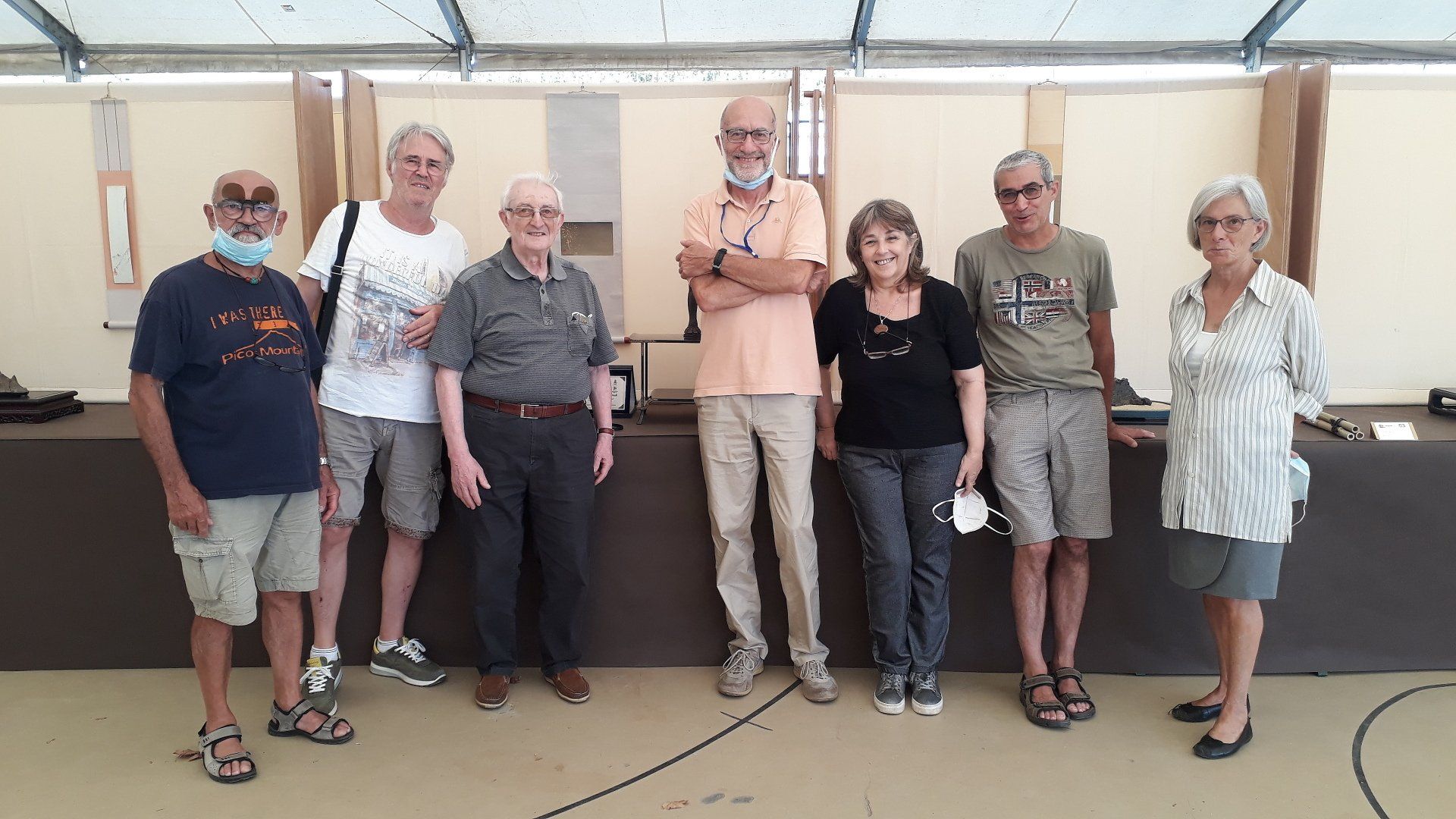NEWS AND EVENTS
VSANA News 2025
News from Korea
June 7-8, 2025
The 34th Gyeongnam Regional Association Member Exhibition
The 34th Gyeongnam Regional Association member exhibition was held at the Bandabi Sports and Cultural Center in Goseong on June 7 & 8, 2025. Goseong County Governor Lee Sang-geun, Korean Suseok Association president Lee Sung-ki, and other officials attended the opening ceremony. Chairman Jin Jong-sun told the attendees “I hope the members will appreciate their lovely stones in the exhibition hall prepared with sincerity and passion, put down the hard work and pain of daily life for a while, and have a happy time feeling the beauty of Suseok.”
The exhibition consisted of 60 high-quality river, sea, and foreign stones from the collections of 27 members of the Association. This association was established on March 8, 1981, and over the past 45 years has left an important mark on the roots and development of modern Suseok culture in the southern region.
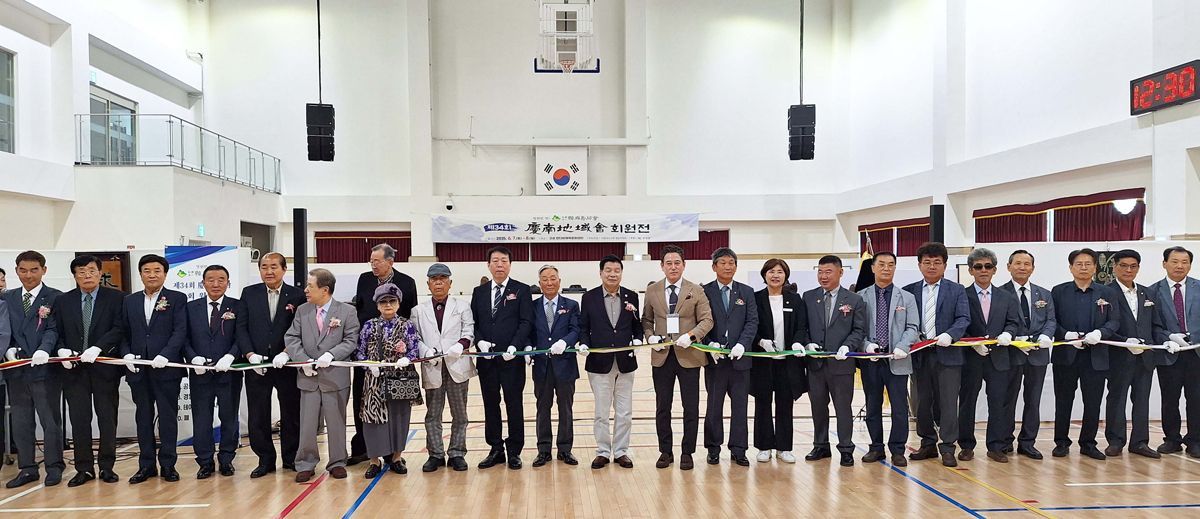
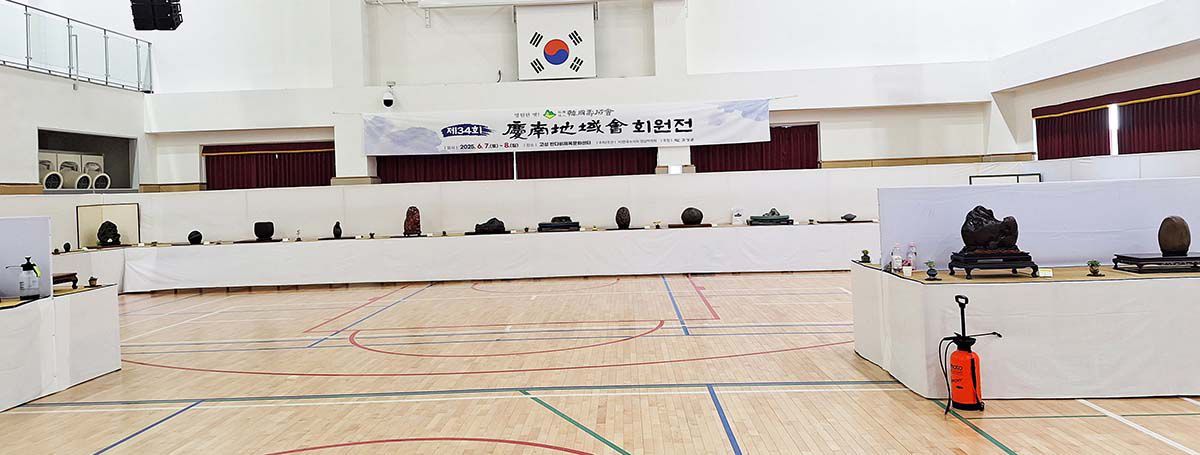
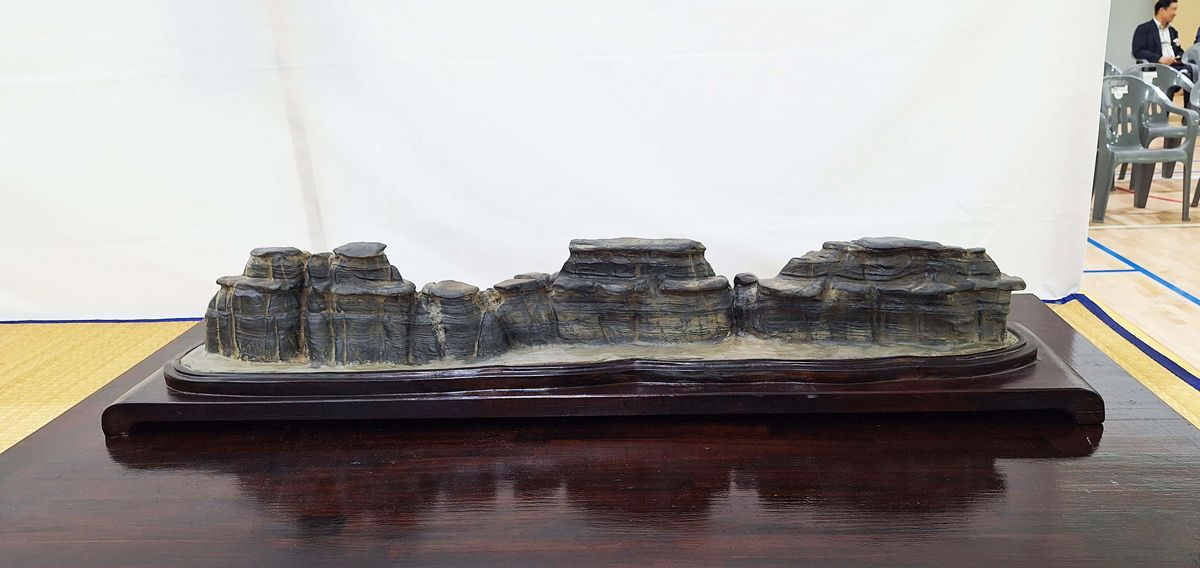
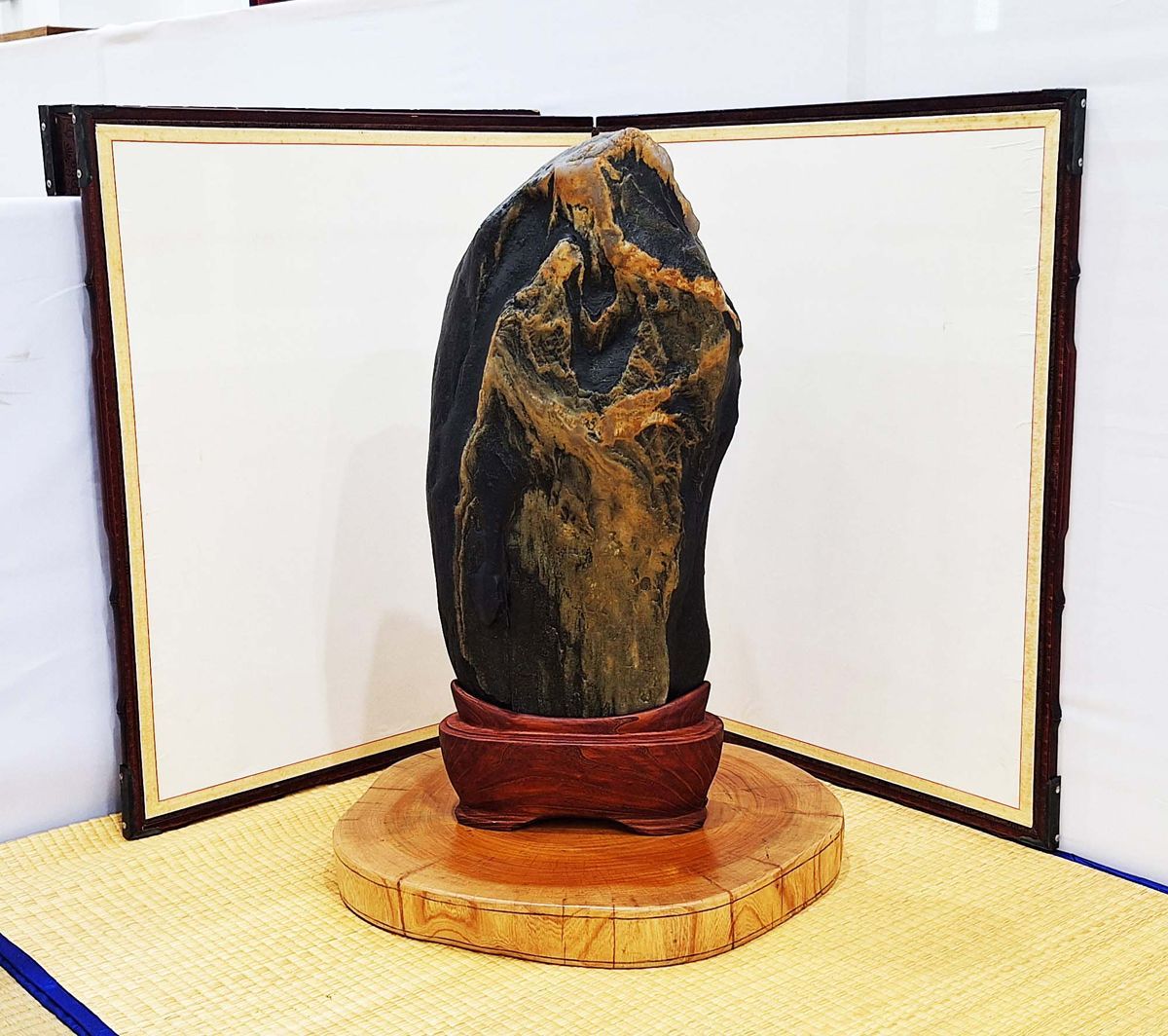
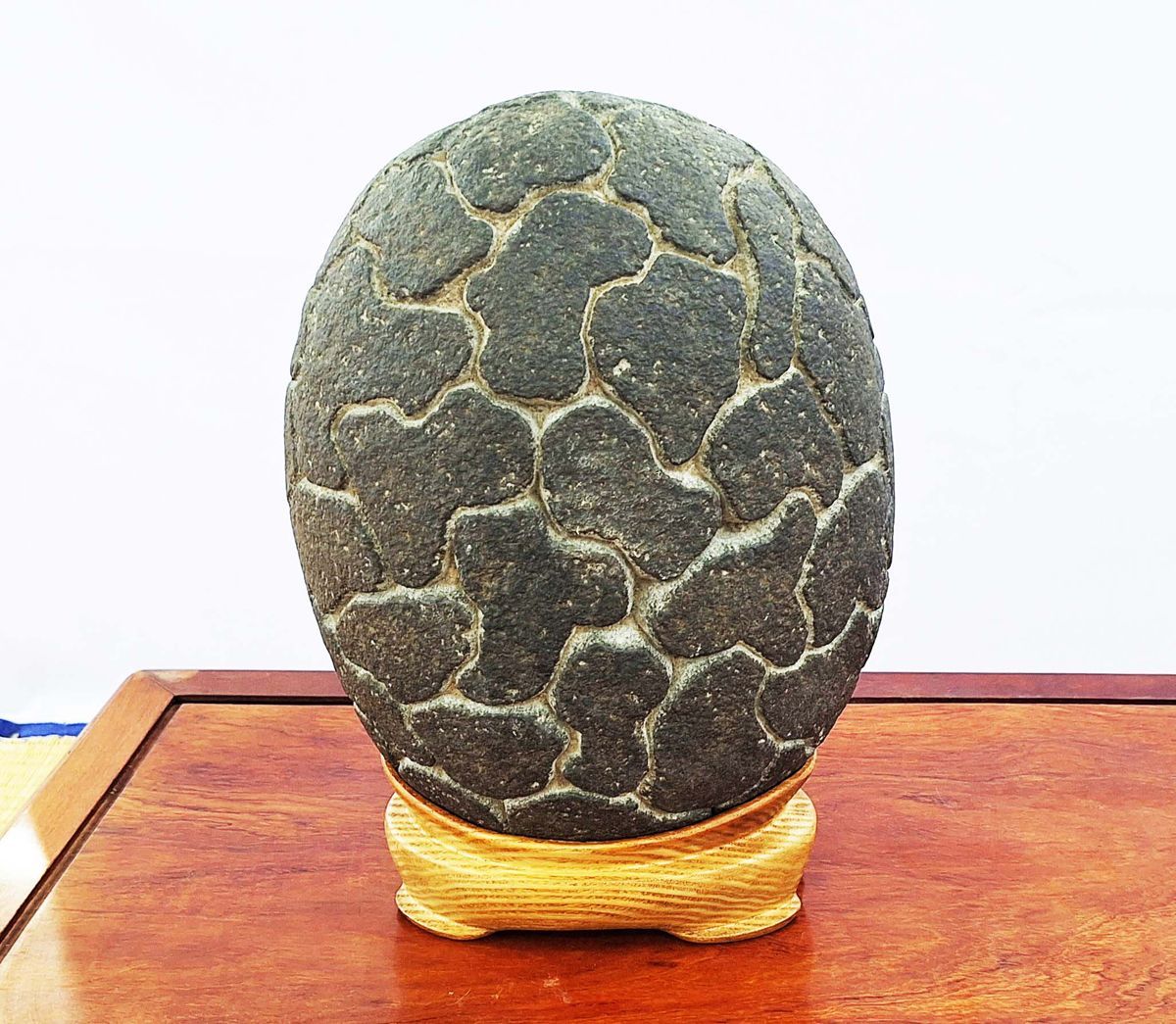
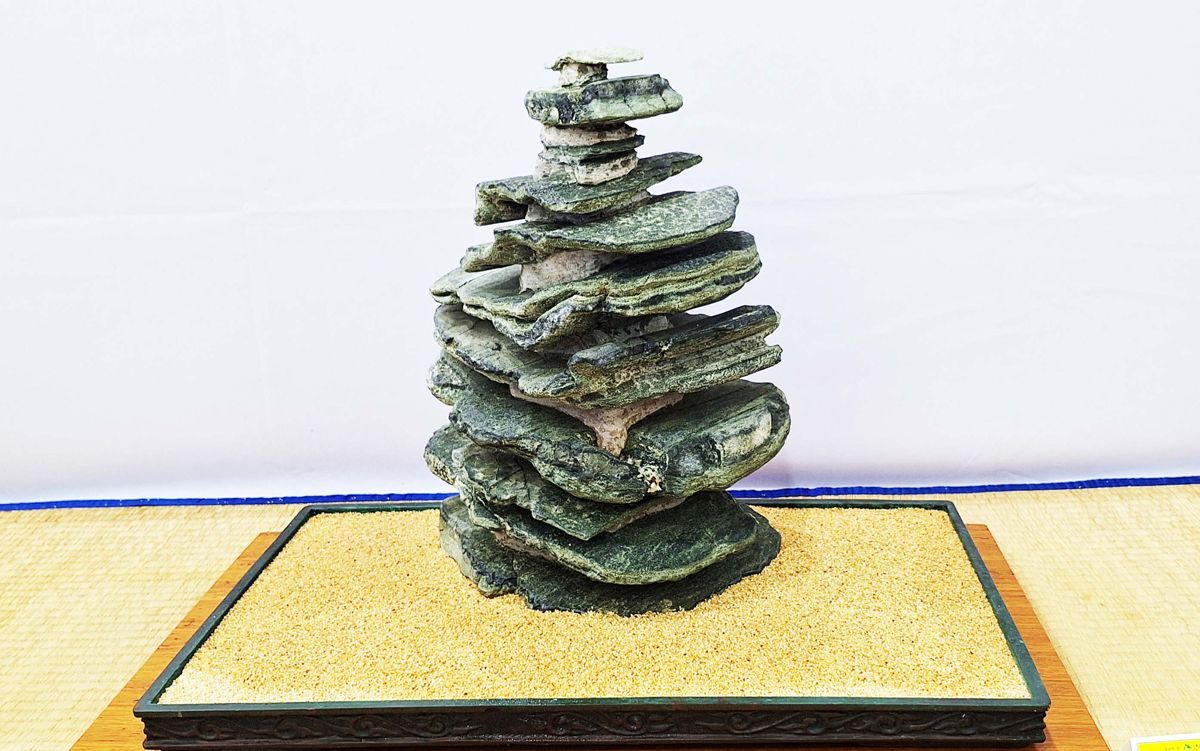
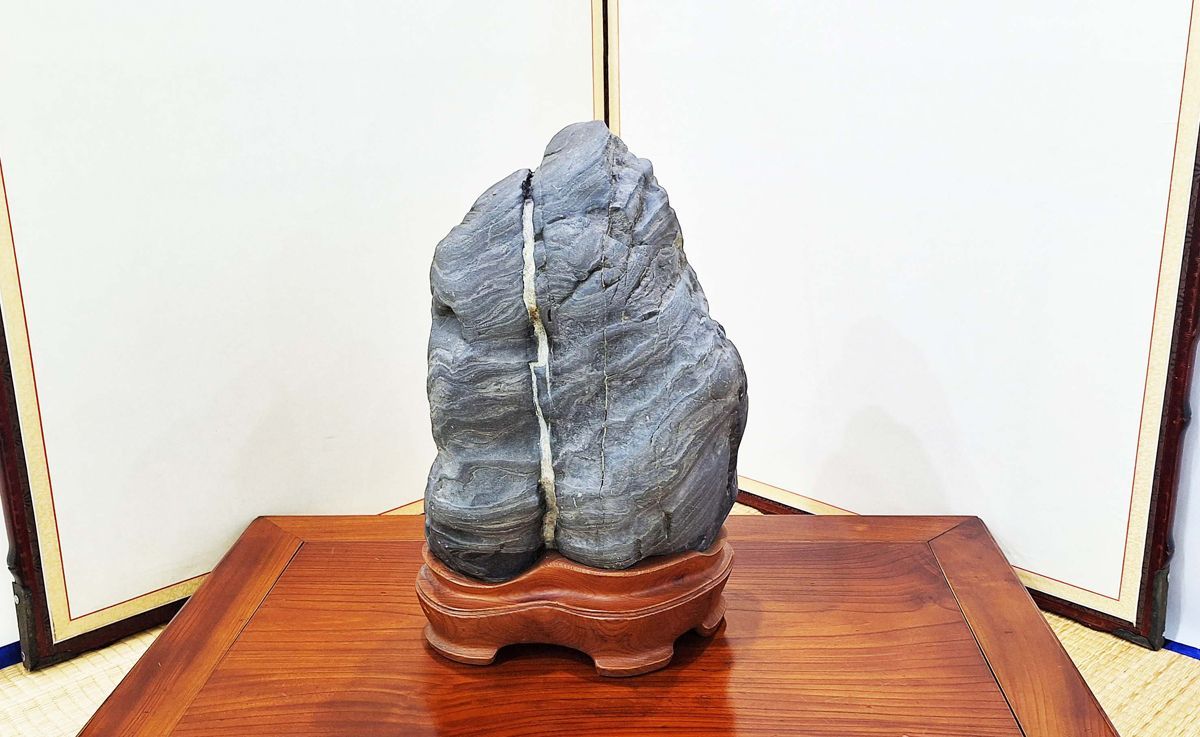
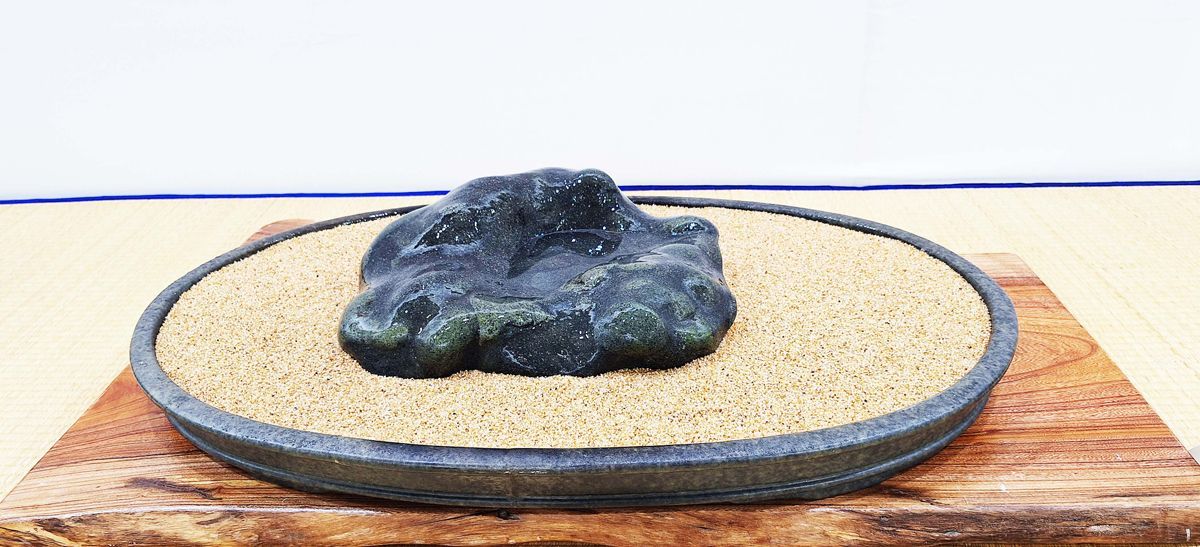
May 14-27, 2025
“Cloud and Scent” Exhibition
An exhibition of 160 stones, folding screens, and ceramic paintings from Unhyang Kwon Young-ja's personal Suseok collection was held at the Insa Art Center in Seoul under the theme “Cloud and Scent.” Mrs. Kwon Young-ja has been collecting and loving stones for 43 years. She founded the Korean Suseok Citizen’s Association, a group of Suseok partners, in March 2013 and has served as its chairman for the last twelve years.
Mrs. Kwon Young-ja said in the opening ceremony, “ I have been walking the path of stone love for the past 43 years, and I am very happy. I have felt a sense of happiness incomparable to anything else. Today, I present to you the Suseok who has worked so hard with passion and excitement for exploration. People say that everything is beautiful when they look at nature as beauty. I would appreciate it if you could look at the stones on display with a beautiful heart. And I hope you have time to share your love and stories of stone with each other.”
Many people attended the opening ceremony, which included introductory information about Mrs. Kwon Young-ga, a speech by former Prime Minister Lee Soo-sung and the Central Chairman of the Suseok Council, and a musical performance. Following these activities, the guests were invited to view the many stones, screens, and ceramics painted by Mrs. Kown.
Mrs. Kwon published a 415-page exhibition catalog of this exhibition and distributed copies to attendees.
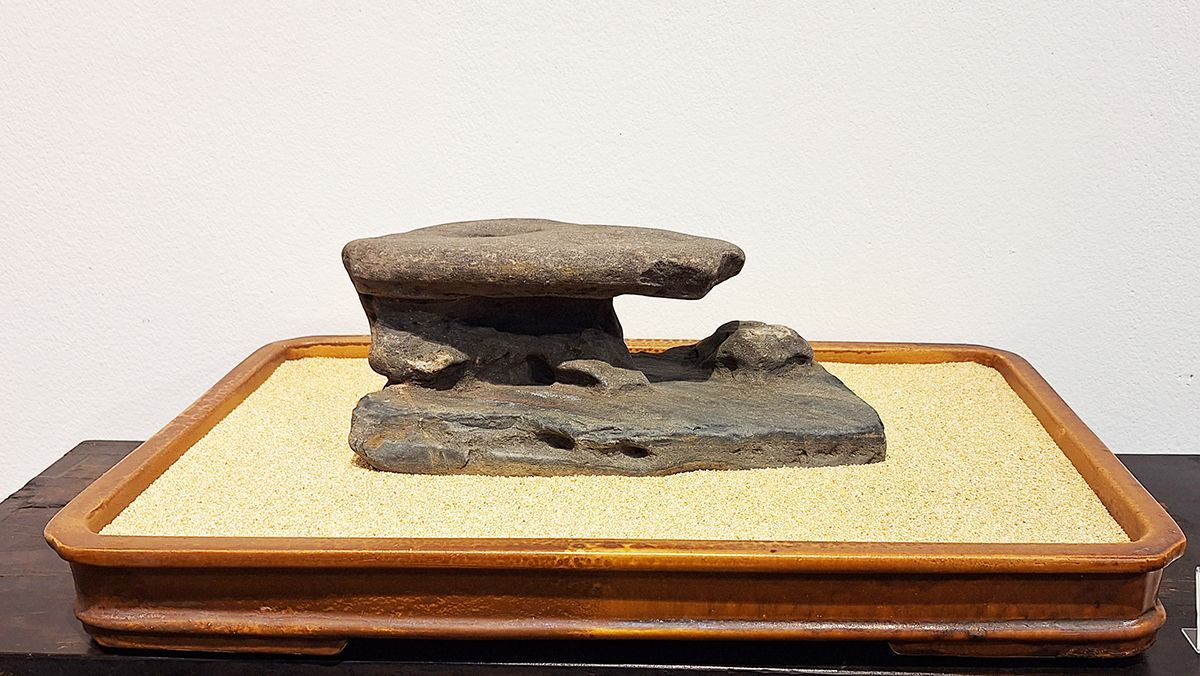
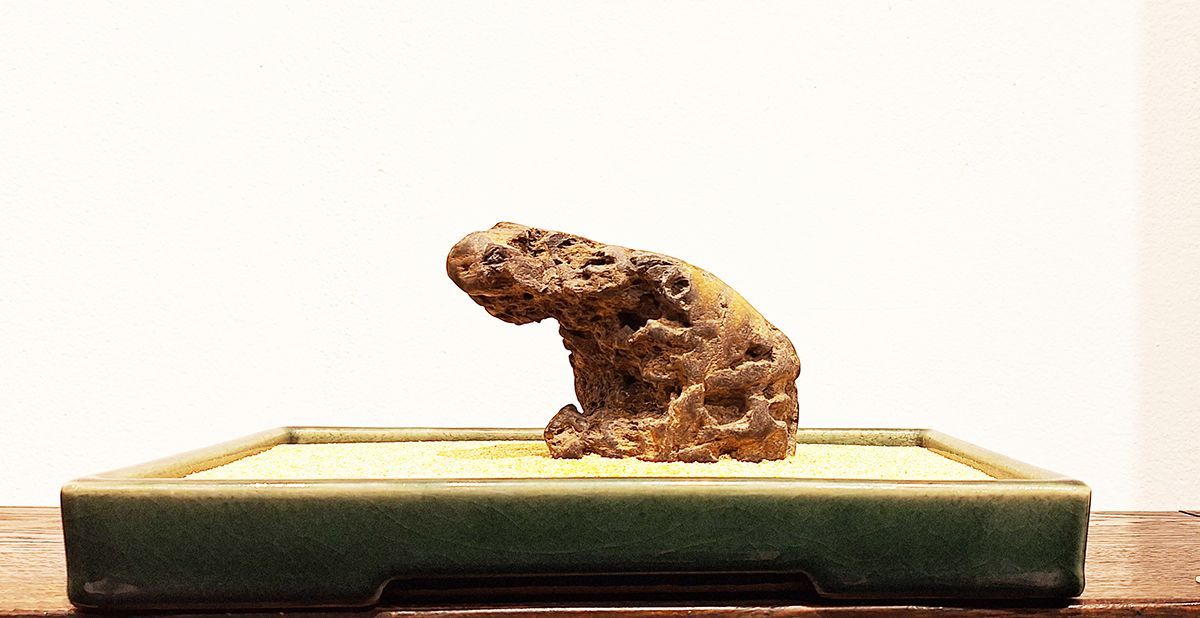
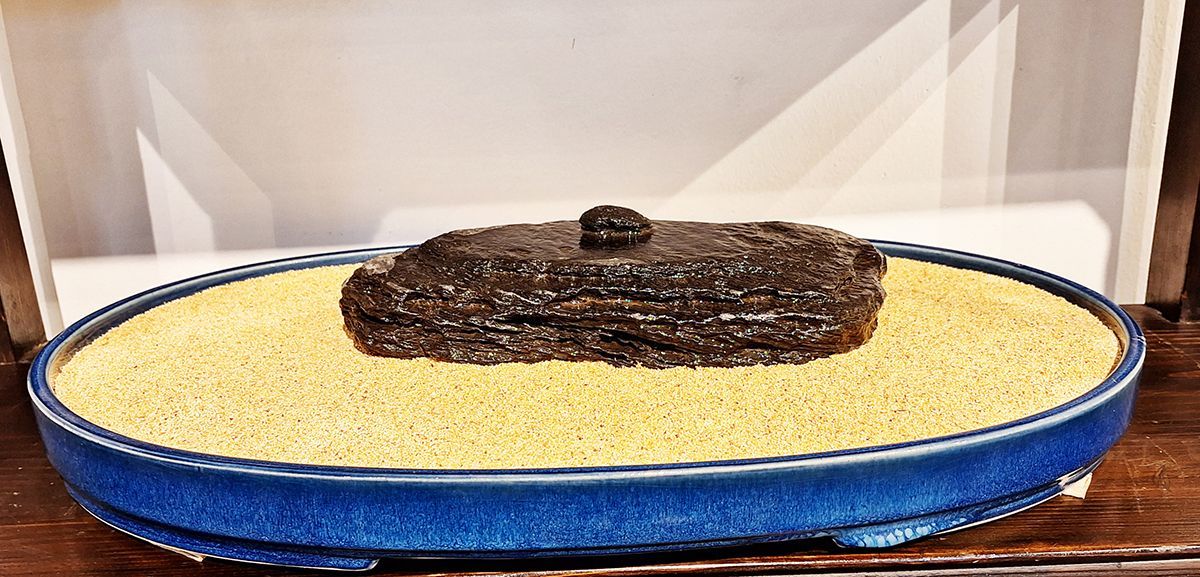
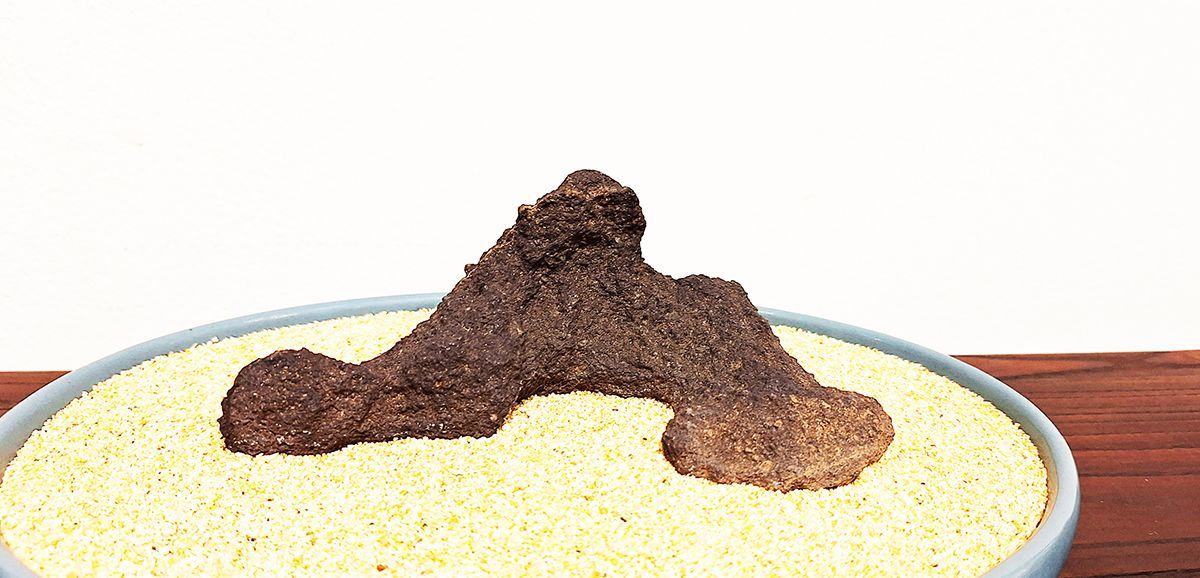
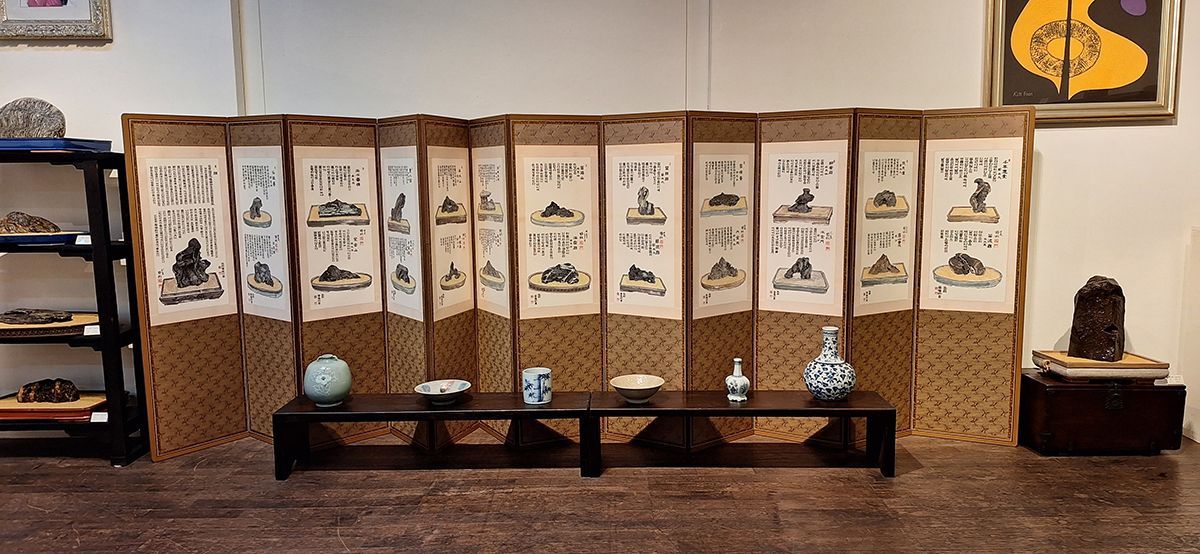
News from France
Important Donation to Paris City Museum of Asian Art (Musée Cernuschi)
“Dragon and Clouds”
In late November 2024, Joseph and Jana Roussel donated an outstanding Chinese Mohu Scholar’s stone to the Paris City Museum of Art. This stone originated in Liujiang County in Guangxi Province. The wood based was carved in Jiangsu region. The Mohu stone is 58 cm high and 56 cm wide. The base is 26 cm high.
Collected in Southern China, this rock was transported almost two thousand kilometers to Suzhou, a city known since the 11th century for classical gardens, by a merchant specializing in scholar's rocks 供石 (gōngshí). Although Mohu stone didn't join the list of highly prized stones until the early 1990s, it corresponds closely to the aesthetics of Chinese literati. It bears witness to the millennia-old Chinese fascination with stones. It closely resembles Taihu stones, one of the four classical types (Lingbi, Taihu, Ying, Kun), all from eastern China, whose sources have been exhausted for centuries. Like Taihu stone, Mohu is a limestone formed by the erosion of lake water. Mohu stone meets the four quality criteria defined by Mi Fu (1051-1107), the great scholar and collector of rocks: Shou (thin), Zhou (wrinkles), Lou (channels), and Tou (holes). This rock fascinates the eye with its multiple passages and sinuous shapes, giving it an appearance of lightness. Despite its considerable mass, it seems to whirl around and projects multiple images, including a dragon emerging from the clouds. Its grey-black skin is covered with white lines of varying thickness. Its complex, multi-dimensional form posed great challenges to the stand-builder, who had to identify six distinct points to marry base and rock.
Provenance: Acquired in March 2006 by the current owner from the Shu Shi Shan Fang gallery (Suzhou) Gallery owner: He Shi Chuang
Gifted to the Cernuschi, the Asian Arts Museum of the City of Paris, in November 2024.
News from USA
May 24 & 25, 2025
VSANA will host a live Zoom seminar, Suseok, The Way of Korean Viewing Stone Appreciation on Saturday evening May 24 and Sunday morning May 25. We will be exploring the world of Korean viewing stones, or suseok—how they compare with Japanese suiseki and Chinese scholar’s rocks, their unique history, and how collectors today can find and appreciate them.
Contact us at tselias@vsana.org to register and obtain the link to the seminar.
The Eastern Leaf Bonsai Nursery in Chino, California has recently expanded its scope to include viewing stones.
They are a 21-year-old business owned by Jason and Renee Chan. Eastern Leaf is one of the largest mail-order bonsai nurseries in the United States The selection of stones currently available are small Japanese suiseki from two longtime collectors in Japan. The majority of the stones come with a nice hand-carved base or daiza. The stones can be viewed on their online catalog at https://easternleaf.com/viewingstones
News from Japan
February 13-16, 2026
The 63rd Meihinten (Exhibition of Japanese Suiseki Masterpieces)
Tokyo, Tokyo Metropolitan Art Museum, Ueno
2nd floor, Hall 4. Hours 9:30-1730
The Museum is closed on Monday, February 17th
February 14-18 2025
The 62nd Meihinten (Exhibition of Japanese Suiseki Masterpieces)
Tokyo, Tokyo Metropolitan Art Museum, Ueno
2nd floor, Hall 4. Hours 9:30-1730
The Museum is closed on Monday, February 17th
November 21-24, 2025
The 45th Taikan-ten (Grand View Exhibition)
Miyako Messe (Convention Center)
Kyoto, Japan
January 25-26, 2025
All Japan Aiseki Association: 17th Kansai Exhibition (51st All Japan Exhibition)
The 17th Kansai Exhibition and the 51st All Japan Exhibition were held at Kakumei-kan, Okayama Koraku-en January 25-26, 2025. This event was sponsored by the All Japan Aiseki Association and co-sponsored by the Sanyo Aiseki-kai.
Thanks to careful planning, excellent stones, and good weather for two days, this was one of the most successful stone exhibitions sponsored by the All Japan Aiseki Association with about 450 visitors including tourists who were visiting Koraku-en on those days. Forty-five stones were displayed, some from the All Japan Aiseki Association members and others from Sankyo Aiseki-kai members. Sankyo Aiseki-kai members worked hard to promote the show by sending direct mail to their friends. Mr. Kobayashi Ippu was a special guest for this exhibition and made a Tokonoma display.
VSANA News 2024
News from USA
December, 2024
We are deeply saddened by the passing of a dear friend, Chris Cochrane, on December 23, 2024. Chris was an enthusiastic leader and promoter of viewing stone appreciation globally, but especially in North America. Cochrane was on the board of the National Bonsai Foundation for 25 years. He was a founding member of the Potomac Viewing Stone Group and served as its president for 18 years.
I had the pleasure of working and interacting with Chris for many years when I was the director of the U.S. National Arboretum. At that time, Chris and the late Glenn Reusch held monthly meetings of their stone club at the arboretum, and staged an excellent annual exhibition of stones in the National Bonsai and Penjing Museum. Chris was exceedingly friendly, generous, and kind. He would burst into excitement when discovering or seeing an outstanding new viewing stone. We worked closely together for many years to acquire new and older books on bonsai and viewing stones for the museum’s library. I continue to work with Chris during my retirement years and would discuss matters relating to stone appreciation. I along with the North American viewing stone community will greatly miss Chris Cochrane.
News from Japan
November 22-25, 2024
The Appeal of the 44th Taikanten, Kyoto, Japan
In late November 2024, 4500 people visited the largest display of excellent bonsai and viewing stones at the four-day 44th annual Taikanten in Kyoto, Japan. This event is held in the city’s spacious convention center, the Miyako Messe, in mid-November typically at the height of the spectacular fall foliage display through this historical and cultural important city. This major event is organized and hosted by the Nippon Bonsai Taikanten Organizing Committee with support from the City of Kyoto, the local newspaper and broadcasting corporations, and the Japan Bonsai Cooperative.
Even though the February exhibitions at the Tokyo Metropolitan Art Museum featured a greater number of bonsai and stones, I prefer the Taikanten. Although the Tokyo exhibitions featured more trees and stones, the Taikanten is superior for the following reasons.
The Kyoto November exhibition permits exhibitors to use a wider range of accessory items to accompany an outstanding bonsai or viewing stone. The displays may be traditional with a scroll and accent plant or they may be more contemporary. A prime example of the latter is a display of medium-sized bonsai with four modern abstract expressionist paintings. The color present is the fruits of a princess persimmon bonsai, which can be seen in the accompanying painting. The more contemporary or experimental approach may have greater appeal to younger audiences, attract new people to the art of bonsai and viewing stone appreciation, and reverse the steady loss in the number of people pursuing these art forms in Japan.
Another appealing feature of the Taikanten is the presence of bonsai and viewing stones displayed together or individually in one venue. The two art forms are complementary and make pleasing exhibits when displayed together. The common saying in Japan that bonsai and suiseki are like the two wheels of a bicycle is appropriate and best understood when attending the Taikanten.
I find the atmosphere of the Taikanten to be more relaxing and with less emphasis on the commercial aspects of bonsai and viewing stone appreciation than at the February exhibitions in Tokyo. Sitting with colleagues from Japan and other countries and discussing a particular exhibit or developing a better understanding of the aesthetic qualities found in a tree or stones is one of the joys of attending a major class exhibition such as the Taikanten.
Finally, Kyoto has many cultural attractions—temples, gardens, museums, the historic Gion District, and much more within a short distance from the convention center. The vibrant fall foliage colors seen in several of the Buddhist temples are spectacular in mid to late November. These features together with a panoply of great restaurants make Taikanten and Kyoto a must-see destination.
November 14-15, 2024
All Japan Aiseki Association the 50th Anniversary National Exhibition
By Thomas S. Elias
The 50th Anniversary Exhibition of All Japan Aiseki Association was held November 14th and 15th in the Asakusa Public Hall in the Asakusa district of Tokyo. To celebrate the 50th anniversary, the association displayed 50 Suiseki from their member’s collections. All the stones were natural. This event was sponsored by the All Japan Aiseki Association with support from the Japan Suiseki Association and the monthly Aiseki Magazine.
In addition, a few foreign members displayed several stones from foreign countries. Even though can find stones anywhere in the world, we hope that visitors to this exhibition found it interesting to see the similarities and differences between Japanese and foreign stones. The Aiseki association was set up in 1985 to promote communications and exchanges among members and to develop and spread the hobby of collecting stones.
August 24-25, 2024
First All Japan Suiseki Wonderful Pieces Exhibition & Auction, hosted by the Japan Suiseki Dealers Association & Japan Suiseki Association. Ueno Green Club, Ueno District, Tokyo
August 10-11, 2024
Small Stone Exhibition hosted by Japan Small Stone Club & Monthy Aiseki. Toyota City Culture Center, Toyota City, Japan
February 14-17, 2024
The Nippon Suiseki Association’s 61st Suiseki Association Meihin-ten at the Tokyo Metropolitan Art Museum
February 09-17, 2024
The Ueno Green Club Spring Sales in Tokyo.
February 09-12; 14-17, 2024
The Nippon Bonsai Association’s 98th Kokufu Bonsai Exhibition at the Tokyo Metropolitan Art Museum in Ueno Park.
January 27-28, 2024
The All Japan Aiseki Association 15th Kansai Exhibition in Koraku-en in Okayama.
News from Canada
October 11-13, 2024
The 60th Anniversary of the Toronto Bonsai Society, one of the oldest Bonsai organizations in North America. Discover 60 years of Bonsai in Toronto at the Toronto Botanical Gardens. An exhibition and sale of some of the finest bonsai, viewing stones, kusamono, and related arts, with guided tours, critiques, workshops, and raffles.
Scheduled guests include William Valavanis from Rochester, New York, Éric Auger and Mariaanne Duhammel from the Montréal Botanical Garden.
News from China
October 31-November 04, 2024
13th Luizhou Viewing Stone Festival, Guangxi, China.
News from USA
Larry Ragle
The viewing stone and bonsai communities mourn the loss of Larry Ragle who passed on May 11, 2024. Larry was an influential leader in North American bonsai and viewing stone communities. Ragle and a small group of like-minded people founded the California Aiseki Kai in 1983 to study and promote Japanese suiseki. This organization held monthly meetings, organized field trips to collect stones, and staged annual exhibitions at the Huntington Library, Art Museums, and Botanical Gardens in San Marino, California.
Larry Ragle was a leader in the California bonsai community for decades and was president of the Golden State Bonsai Federation, the California Bonsai Society, and the Kofu Bonsai Kai. He served as editor of Awakening The Soul, a book featuring the stone collection of the National Bonsai and Penjing Museum at the U.S. National Arboretum in Washington, D.C. Ragle was a long-time member of the Board of Directors of the National Bonsai Foundation. He has served in leadership positions in many other bonsai-related organizations in California.
We will miss his wit and wisdom, but his many contributions will continue to influence current and future generations of bonsai and viewing stone enthusiasts. He was able to accomplish so much due to the support and efforts of his wife Nina who worked side by side with Larry throughout his bonsai and stone appreciation years.
August 1—September 29, 2024
The Potomac Viewing Stone Group will stage an exhibition, Viewing Stones, A Cultivated Taste, in the National Bonsai and Penjing Museum’s International Pavilion at the U.S. National Arboretum in Washington, D.C.
News from Italy
October 25-27, 2024
AIAS 2024 Annual Convention and Exhibition will be held in Park Hotel San Michele, Martina Franca, a town in the municipality of Taranto in southern Italy.
VSANA News 2023
News from Italy
October 14-15, 2023
The XXVI AIAS Congress will be held October 14 & 15th in Animali in Fiera a Forli.
News from USA
July 20, 2023
The 10th VSANA Seminar, The Tray and the Stone, The Role of Trays (Suiban) in Viewing Stone Appreciation, will be broadcast live on Friday evening and repeated on Saturday morning. Contact us at
tselias@vsana.org for details and access.Miyako Messe.
News from Japan
November 24-27, 2023. Kyoto
The Japan-China Dedication Bonsai and Suiseki Exhibition will be held at the Kiyomizu Temple in Kyoto on November 24-27. It is concurrent with the Taikan-ten at the Miyako Messe in Kyoto. The Kiyomizu Temple exhibition will be led by Kobayashi Kunio in cooperation with the Chinese Consulate on Osaka City. During the exhibition, various activities are planned such as Bonsai and Keido demonstrations and others. Several Chinese penjing experts will also attend this exhibhition. Both Japanese and Chinese stones will be exhibited at this event.
November 24-27, 2023
Kyoto, Japan, The annual Taikanten will be held in the Miyako Messe Convention Center in Kyoto, Japan.
August 2023
Tokyo, Japan.
The Future of the Meihin-ten.
The Nippon Suiseki Association (NSA) made a major change to its exhibition program involving the annual Meihin-ten and Japan Suiseki Exhibitions. Beginning in February 2024, the Meihen-ten Suiseki Masterpiece exhibition will shift from its Meiji Shrine venue to the Tokyo Metropolitan Art Museum. The name Japan Suiseki Exhibition will be dropped and replaced with the 62nd Meihin-ten. Instead of organizing two major viewing stone exhibitions each year in Tokyo, the association will reduce that to a single exhibition held in February. This major change may be due to the continued shrinking of the number of suiseki collectors in Japan combined with the limited resources of the Nippon Siiseki Association to stage two exhibits and publish two exhibit catalogs each year.
The first exhibition of Japanese Suiseki Masterpieces (the Meihin-ten) was held in 1961 and continued each year, except for one year during the Covid pandemic, until 2012 when the NSA held the first exhibition in the Tokyo Metropolitan Art Museum. This venue attracts more visitors than the Meiji Shrine site, and the combination of two related exhibits, bonsai and stones, make it more attractive to foreign visitors. This proved successful as more foreign exhibitors participated in the Japan Suiseki Exhibition.
We are not aware of the size and format of the 2024 exhibition catalog at this time. Will the NSA jettison the small format previously used for the Meihinten catalog and use the larger, more attractive format used in the Japan Suiseki Exhibition publication? We hope that a change to the larger format will occur.
Nippon Suiseki Dealers Association (NSDA)
The NSDA named Kobayashi Kunio as the new president of the 60-member Nippon Suiseki Dealers Association. The leader of this association became vacant with the passing of Mr. Utsumi, the former head of the NSDA. Mr. Nagasawa, newly elected president of the Nippon Suiseki Association, will work closely with Kobayashi Kunio to promote suiseki culture and to revitalize the suiseki market. As the market for suiseki continues to shrink in Japan, the demand for quality Japanese stones abroad has increased over the last two decades.
All Japan Aiseki Association
At a recent general assembly meeting, the association elected Nishiyama Takashi as the new president of the All Japan Aiseki Association. Nishiyama had been serving as Acting President following the death of Sugo Minitaka earlier this year. “Tom” Nishiyama has been active in the Association for many years and in many roles. The association staged two successful exhibitions in January and October 2022.
They will hold the 48th All Japan Exhibition at the Asakusa Center in Tokyo from November 4 and 5, 2023. Foreign stone collectors are invited to participate. The entry fee for each stone is 15,000 Yen and the stones must arrive in Japan by October 10th. Photographs of the stones will be published in the Aiseki magazine.
They will hold their next major display, the 16th Kansai Exhibition, on January 27 and 28th in Korauen Garden, Okayama.
July 29-30, 2023
Toyota, Japan.
The Toyota Stone Club and the Monthly Aiseki magazine joined together to stage a Japan Viewing Stone Exhibit at the Toyota Citizens Cultural Center on July 29 and 30. There were 109 stones in this exhibition, including 7 stones from foreign participants. A special program was held on stone painting for children, and a class on Suiseki was offered as part of the exhibition. Well-known suiseki connoisseur, Tom Nishiyama, coordinated the exhibit. Watch for the next issue of Aiseki magazine for more information and photos from this event.
June 25, 2023
The Nippon Suiseki Association (NSA) held a meeting on June 25, 2023 to appoint new officers and elect new board members. Mr. Nagasawa Koji is now the Chairperson of the board replacing outgoing chairman Kobayashi. The board consist of 17 members plus the secretariat. Vice chairs are Mrs. Suzuki Shigeru and Nakagawa Mikio. Mr. Morimae Seiji will be secretary general as a board member. Mr. Kobayashi Kunio, former chairperson, now serves as a supreme advisor with other four advisors. Mr. Jin Yasufumi becomes a new board member.
Mr. Nagasawa Koji, the new chairperson, has been with the JSA for over 30 years. We wish Nagasawa great success in his new role, and we look forward to working with him to promote suiseki worldwide.
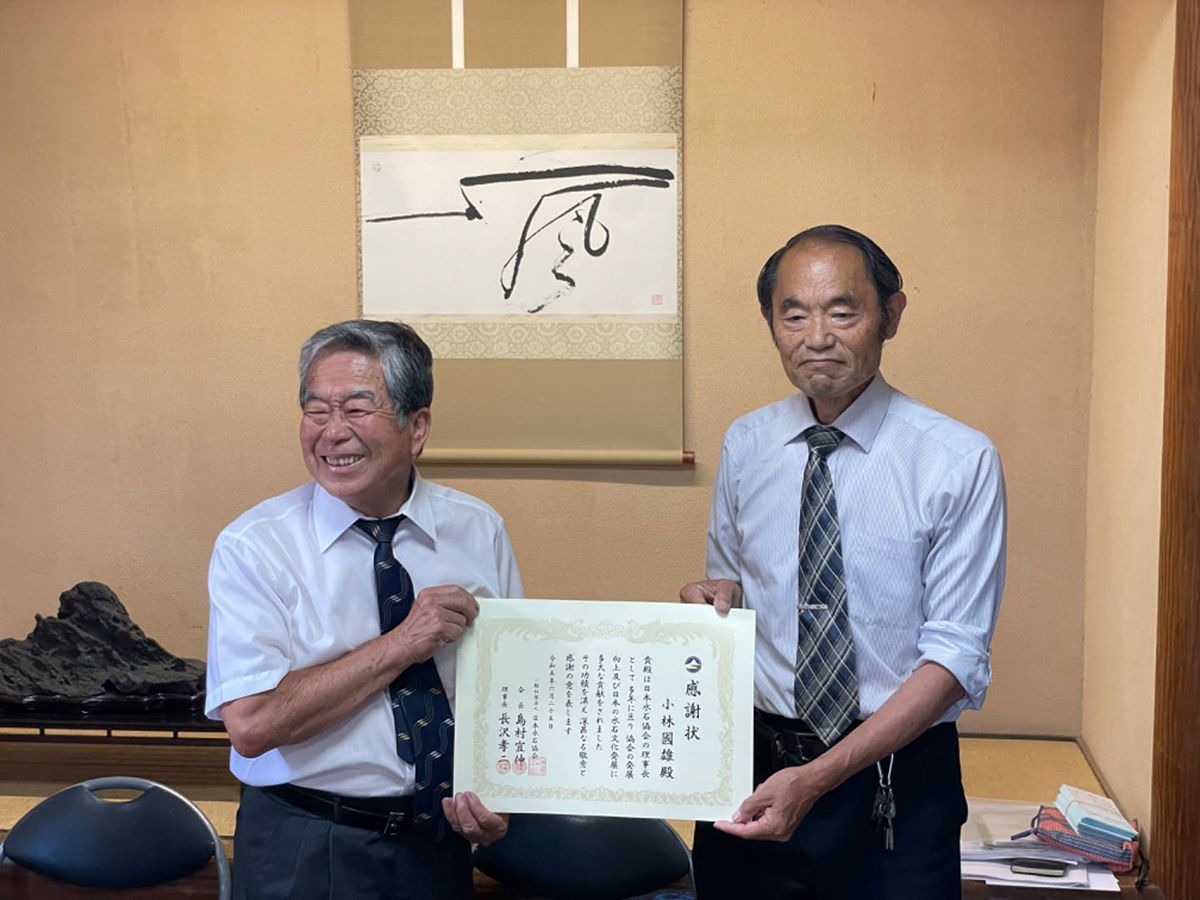
June 24, 2023, Tokyo, Japan
After serving in this position for the last ten years, Mr. Kobayashi Kunio retired as president of the Nippon Suiseki Association (NSA). During this time, the NSA annually staged the very successful Japan Suiseki Exhibitions at the Tokyo Metropolitan Art Museum in February and the Meihenten at the Meiji Shrine in Tokyo in June.
Mr. Nagasawa Koji was elected as the New President of the Association. Mr. Nagasawa has been closely involved with the NSA. He has been with the association for over 30 years. We wish Mr. Nagasawa great success in his new role.
News from USA
June 8-11, 2023
Viewing Stone Exhibition at the 2023 American Bonsai Society Annual Convention
Denver, Colorado, A beautiful, professionally curated exhibit of 24 viewing stones was staged at the Denver Botanical Garden as part of the American Bonsai Society convention June 8 - 11, 2023. Stones from different countries were loaned to the garden by eight stone collectors--Les Allen, Thomas Elias, Paul Gilbert, Larry Jackel, Diana Lee, Nina Ragle, Janet Roth, and Darrell Whitley. The curatorial staff at the garden staged the exhibit in a hallway leading to a major art gallery.
Darrell Whitley, a stone collector and professor at Colorado State University, coordinated the exhibition of stones and gave a lecture given during the bonsai meeting. The lecture and stone exhibit was well received by convention participants and visitors to the garden. The stone exhibit will continue to be on display in the garden throughout the month of June.
This exhibition set a high standard for the public display of viewing stones, which we should try to emulate at other venues. Congratulations to the convention planners and the garden staff for this opportunity to show excellent stones.
Photographs courtesy of Darrell Whitley
News from Slovakia
June 2-24, 2023
Slovak National Suiseki Exhibition and the Suiseki Exhibition of the San Seki Working Group will have an exhibition at the National History Museum in Hlohovec, Slovak. Contact Igor Barta for more information.
News from Canada
August 26-27, 2023
Inspired by Contemporary Aesthetics
The Bonsai Society of Winnipeg exhibited 51 viewing stones at their annual bonsai display on August 26 and 27, 2023, along with 112 bonsai trees. The stones are always a highlight and an enjoyable surprise for many visitors who expect to see bonsai. This year, due to multiple presentations throughout the year and one workshop on viewing stones, many new members exhibited stones for the first time. While carving bases is an acquired skill, VSANA’s Contemporary Gallery inspired many to be creative with their presentations. Here are a few examples of the ones inspired by VSANA.
May 13-14, 2023
Toronto, Ontario, Inspired by (but not to be outdone by) our family at the Winnipeg club, the Toronto Bonsai Society has expanded its semi-annual show to include viewing stones in its display. The Suiseki fans are a growing contingent of the Club, owing much to our former member Arthur Skolnik. We honor the traditional approach to stone presentation, but are excited by the opportunities contemporary stones provide. The Toronto Bonsai Society has continued to build on the reputation it earned at IBC ’97 and regularly exhibits superb trees.
News from USA
May, 2023
Los Angeles, USA, 50th Anniversary of the First Los Angeles Meiseki Exhibition
Fifty years ago, a major exhibition of viewing stones, particularly chrysanthemum flower stones, was held in Los Angeles from May 14 through August 30, 1973. The exhibition was held at the Los Angeles County Natural History Museum. The Los Angeles Nagoya Sister City Affiliation and the Chubu Aiseki Association sponsored it with support from both sister cities and the Los Angeles County Natural History Museum.
Mr. Shuizo Sumi, Chairman of the Chubu Aiseki Association, arranged for nearly 200 stones to be shipped to the museum. The Association published a catalog for this three-month exhibition illustrating 123 stones displayed, including thirty-eight different chrysanthemum flower and peacock stones. Some of these chrysanthemum flower stones were polished, while others were natural, unaltered mum stones. This may have been the first time these stones were displayed in the United States. The remaining Japanese stones were different established types, including Furuya; Ibi, Seta, Kuji Saji River stones; Kamuikotan, Seigaku, and even a Yojuro stone.
Mrs. Toy Sato, a southern California collector of minerals with flower-shaped crystals and Japanese Suiseki, played a key role in helping to arrange this sister city’s first “Los Angeles Meiseki Exhibition.” Toy Sato is likely the first North American collector of Japanese chrysanthemum flower stones. Some of her stones were displayed in this exhibit.
This exhibition in a major Los Angeles Museum helped to foster and promote an interest in Japanese stone appreciation in North America and California.
The following chrysanthemum flower stones were in the Toy Sato collection at one time.
News from Czech Republic
April 20-23, 2023
XXVI EBA/ESA convention and exhibition; and the CBS convention, bonsai and susieki exhibition. Flora Exhibition Center. Olomouc Czech Republic. Contact Igor Barta for more information.
News from Japan
February 14-18, 2023
The 10th Japan Suiseki Exhibition, Tokyo
The 10th Japan Suiseki Exhibition was held in the Tokyo Metropolitan Art Museum from February 14-18th. This important display of outstanding stones from Japan and other countries was organized by the Nippon Suiseki Association headed by Kobayashi Kunio. This is considered the finest annual exhibition of Japanese Suiseki. Each year, a section of the exhibition is devoted to a display of unique items of historical importance or outstanding quality. A catalog of the exhibition was published and is available from the NSA.
News from the United States
February 4-5, 2023
The Southern Breeze Tree and Stone Society
The Southern Breeze Tree and Stone Society of Claremont, California staged a two-day
exhibition of Chinese viewing stones and penjing at the Huntington Library, Art Collections, and Botanical Garden in San Marino, California, as part of their Chinese New Year Celebration. Over 7,000 people participated in this sold-out event.
November 1, 2022—January 8, 2023
Pacific Bonsai Museum near Seattle, Washington
The Viewing Stone Club, an informal study group within the Puget Sound Bonsai Association staged an exhibition at the Pacific Bonsai Museum near Seattle, Washington from November 1, 2022 through January 8, 2023. The exhibit, Stone Images XII consisted of more than 30 stones. The small group of dedicated stone connoisseurs in the Pacific Northwest region of the USA has made important contributions to the understanding of North American stones over many years. Following are some images from that display. Our thanks to Edd Kuehn for the photographs.
VSANA News 2022
News from Canada
September 3-4, 2022
Winnipeg, Canada
The Bonsai Society of Winnipeg expanded its annual exhibition this year to include a selection of Canadian viewing stones. This exhibit has displayed trees from the best bonsai artists in central Canada since 1990. As a result, an exhibition of unusual and interesting stones adds an exciting new element to their quality exhibitions. The Bonsai Society of Winnipeg is steadily gaining a well-deserved reputation for excellent bonsai in North America.
News from Japan
July 30-31, 2022
Toyota, Japan
The 4th Japan Small Stone Exhibition, Japan Viewing Stone Exhibition in Toyota was held in the Toyota Citizens Cultural Center. The exhibition was a collaborative effort between Aiseki Magazine and the Aiseki Federation clubs of central Japan. There were several sponsors of this event. This year, 106 stones were exhibited in the center and over 700 people came to see the stones on display. The exhibition included a learning area where children can have a hands-on experience with suiseki. Each day, five children together with a parent learned how to make a daiza from clay. Each student received a stone and clay and worked under supervision to make a base for their new stone. This was a popular program but had to be limited in number due to Covid virus restrictions.
News from South Korea
May 20-22, 2022
A major exhibition of Korean Suseok was organized by the Dragon Year Association by many Suseok officials. Sixty-four people participated in this event. It had been planned for 2021, but was postponed until May 20-22, 2022 due to the Covid-19 pandemic. Here are a few photographs of excellent stones displayed at this event in Daegu, South Korea.
News from India
June 4-5, 2022
Shila Khand Suiseki Convention, Mumbai, India
On June 4th and 5th, Thomas S. Elias gave two lectures and a workshop on stone appreciation at the Shila Khand Suiseki Convention sponsored by the South Asian Bonsai Federation based in Mumbai. Nearly 400 people participated in this event. The vast majority of participants were from India where interest in learning about viewing stone appreciation is growing rapidly. During the lectures, he encouraged the audience to first learn about the Chinese and Japanese traditions, then slowly develop a new Indian concept of stone appreciation. Elias questioned the wisdom of adopting a practice of subtle understated beauty when Indian culture is filled with color, celebrations, and a concept of beauty that contrasts with the aesthetic concepts that are applied to Suiseki in Japan. Instead, he hoped that collectors in India will adapt certain features such as the criteria for evaluating stones and then apply their preferences for any of the well-established practices (Chinese, Japanese, Korean) or begin to develop display methods that incorporate elements related to their own customs and culture.
The presentations were recorded and can be found on YouTube at
https://youtu.be/hfGf_5Koe6M and
https://youtu.be/YV-wuTnBYqE.
News from Phillipines
March 27-29, 2022
The Natural Stone Society of the Philippines held its General Assembly (annual meeting) in conjunction with an exhibition of a large number of viewing stones, art, and curios at the Mexican Embassy in Manila. NSSP President Anthony Gedang gave a suiseki lecture on the opening day of the general assembly.
News from Czech Republic
April 21-24, 2022
The Czech National Exhibition of Bonsai and Suiseki will be held in Lysá nad Labem in the Czech Republic from April 21-24.
News from Poland
June 7-19, 2022
The Suiseki International Exhibition of the San Seki Working Group will be held in Krakow, Poland.
News from Germany
June 17-19, 2022
The European Bonsai and Suiseki Association will hold its annual convention and exhibition in Augsburg, Germany from June 17-19 this year.
News from Japan
July 30-31, 2022
The Aiseki Club Toyota will hold a nationwide small stone exhibition in Toyota, Japan. Small stones from aboard are invited.
February 11-13 2022
The Ninth Japan Suiseki Exhibition (JSE) was held February 11-13th at the Tokyo Metropolitan Art Museum in Ueno Park.
It was another fine exhibition of Japanese suiseki and viewing stones from other countries. The JSE is attracting more foreign participants each year. This event is still the premier viewing stone exhibition held in the world. Here are some scenes and a few of the stones displayed this year. Thanks to Tatehata Kengo for the following images from the exhibit. The publication of the exhibition catalog for the 9th JSE will be delayed due to the pandemic.
News from Italy
September 23-25, 2022
The annual AIAS convention and exhibition will be held in Bondeno de Gonzaga, Mantova Province in northern Italy.
VSANA News 2021
News from Europe
Italy, Pisa, November 5-7, 2021
The Italian AIAS held its annual congress and exhibition from November 5-7 in Pisa.
In addition to the exhibition of many fine viewing stones, the congress held an election of officers to guide the association for the next four years. Luciana Queirolo was relected as President, Laura Monni was elected as Vice President, and Carlo Scafuri as Secretary. In addition, Ulisse Maccaferi was elected as Treasurer, and Emilo Capozza and Aldo Marchese as Councillors. Following are some of the prize winning stone displays in this year’s exhibition.
Passages
October, 2021
We are sad to inform you that we lost two good friends in October, and the global viewing stone community lost two key advocates: Felicidad S. Gupit from The Phillippines and Glenn Reusch from the United States.
Felicidad (Fely) Gupit became the founding president of the Natural Stone Society of the Philippines in April 2001. Mrs. Gupit was collecting interesting stones long before she learned about Chinese and Japanese stone appreciation culture. Native Philippines stones were displayed with bonsai at the 7th Asia Pacific Bonsai and Suiseki Exhibition in the Philippines in 2003 thanks to Fely’s efforts. Since that time, native stones have been part of annual displays of bonsai and viewing stones. Mrs. Gupit encouraged people to search for new and provocative stones in the mountains and rivers. As a result, new stone clubs emerged throughout her country. Mrs. Gupit remained as president until just a few years ago when Anthony Gedang took over the presidency.
The Natural Stone Society of The Philippines has become one of the most active groups outside of China and Japan. Some of her stones are illustrated in the book The Bonsai and Suiseki collection of Felicidad Sanchez-Gupit published in 2004. Her society published The Philippine Collection: The Wonders of Natural Stones in 2013. We will miss her but long remember her important contribution and her enthusiasm for good viewing stones.
Later on October 26, Glenn Reusch longtime advocate and one of the leaders of the Potomac Valley Stone Club in Washington D.C. passed. Glenn was the secretary for this important group of stone collectors and, along with Chris Chrane, staged many important stone exhibits in the National Bonsai and Penjing Museum at the U.S. National Arboretum. Glenn took the lead in staging each exhibit.
For more than two decades, they held monthly meetings where speakers presented information about varying aspects of stone appreciation. Glenn also served as co-chair of the 5th World Bonsai Convention held in Washington D.C. in 2005. Mr. Reusch served on the board of directors of the National Bonsai Foundation. He organized stone hunting trips in the Appalachian Mountains chain in the eastern U.S. Glenn’s smile, and his tireless energy will be missed. Through his efforts, tens of thousands of people saw extraordinary viewing stone displays in the capital of the U.S.
Suiseki in Mexico
The practice of stone appreciation in Mexico is recent, having developed in the last15 years. Interest in viewing stones developed from the earlier introduction of bonsai culture. As people in Mexico began practicing bonsai, they became aware of Japanese suiseki and began searching for suitable stones and importing suitable rocks from Japan and other countries. Among the earliest bonsai enthusiasts who also collected viewing stones were Cery Cortes, Saul Hernandez, Guillermo Castano. Enrique Castano, Miguel Ross Tatsugoro. Emigdio Trujillo, Gabriel Moreno, and Hugo Zamora. These individuals utilized stones as companion objects to their bonsai.
Later, a smaller group of individuals began to study and pursue stone appreciation separate from bonsai. Some of the first people were Jose Rayo, Jose Ramon, Alfredo Rodiguez, and Lorenzo Contreras. They came together to form Suiseki Ehecatl, Mexico. This new organization promoted the art of suiseki and sought to participate in exhibitions of bonsai in Mexico. Their first exhibition was with the Bonsai Club of Texcoco in 2011. Also that year, Suiseki Ehecatl Mexico participated in a second exhibition with the Bonsai Shihai Club of Puebla. Chiara Padrini of Italy was invited to judge the stones on display and teach principles of stone appreciation. Following this, Suiseki Ehecatl Mexico went on to participate in many bonsai exhibitions throughout Mexico.
The next step was to organize exhibitions of viewing stones separately from bonsai. The most notable one occurred at the Museum of Geology at the Federal District's Universidad Nacional Automo de Mexico in 2020. Here the Mexican-Japanese Association held a suiseki display of nearly 80 stones in collaboration with the museum. Even though activities were curtailed by the Covid-19 pandemic of 2020-2021, the Suiseki Ehecatl Mexico members participated in international online stone competitions. Stone collectors in Mexico won awards in The Bonsai and Suiseki Alliance of the Philippines, Inc. and the Small Stone Contest sponsored by the Viewing Stone Association of North America (VSANA).
The pursuit of suiseki and viewing stone culture is alive and well in Mexico thanks to the dedicated efforts of a group of individuals who are searching for outstanding stones in their country.
For further information, see
www.facebook.com/SuisekiMexico
News from USA
September 10-12 2021
National Bonsai Exhibition, Rochester, New York
By Les Allen
After a year's delay, the 7th National Bonsai Exhibition took place September 11 and 12 in Rochester, New York, thanks to founder Bill Valavanis and his army of volunteers. The Bonsai community from across the nation brought their Bonsai, Kusamono, and Suiseki to exhibit in this show. It is now the largest and most prestigious Bonsai exhibition in the United States.
An international slate of judges—Kathy Shaner, Enrique Castaño and Marco Invernizzi—evaluated and presented awards for the best trees, arrangements, and stones in the exhibition. The exhibition of stones was by invitation only. Approximately fifteen people exhibited about thirty stones.
An aerial shot of the stone exhibit and next is Bill and me standing at the entrance to the exhibit.
This Japanese stone was awarded the best stone in the exhibit. Its base was made by Sean Smith. This stone is rugged yet elegant in form suggesting a snowcapped mountain.
This abstract shaped stone appears to be a Seigaku from Japan. It is nicely displayed on a plain black jitta.
The owner of this stone is an avid collector with an artistic eye for display. The stone is nicely placed in a Nick Lenz suiban. Its angular shape and exceptional patina made it stand out in the exhibit.
Although this figure stone was recently found in Puerto Rico, its patina gives the appearance of age.
These two stones are part of my personal collection. The first stone exemplifies how a stone can reflect seasons. Its colors suggest leaves changing colors in the autumn and is quite appropriate for a Fall exhibition. The stone was originally owned by Frank English, one of the pioneers of stone collecting in Northern California. He collected this in Stony Creek.
The following stone is a Japanese Kamuikotan stone from the Northern Japanese island of Hokkaido. These stones are noted for their dark black shiny appearance. You may see it as a plateau stone (Doha), or a step stone displayed on a brass stand with mottled patina.
Three New Viewing Stones Exhibitions Online
Huntington Library, Art Museum and Botanical Gardens (https://www.huntington.org)
The Huntington is hosting the 31st California Aiseki Ka annual viewing stone show and two creative theme-based exhibits by the Huntington's American Viewing Stone Resource Center. The two theme exhibits are: Let it Snow—Viewing Stones in Winter and the Magic of Mimetoliths—Animal Imagery in Stones.
You can view these exhibits at the following link:
Viewing Stones Online Show
News from Japan
November 2021
The Taikanten may be held in Kyoto in late November if the Miyako Messe convention center is made available. This is subject to the continuing developments of the Covid-19 virus situation in Japan. At this time, it is extremely difficult for tourists to visit Japan.
February 12-14, 2021
The Japan Suiseki Association (JSA) held its 8th Japan Suiseki Exhibition (JSE) at the Tokyo Metropolitan Art Museum.
A small domestic audience and virtually no foreign visitors could view the many fine displays this year due to the global COVID-19 virus situation. Despite that, the JSE deserved recognition for its willingness to move forward and stage this important exhibition. We should all continue to support the JSA and participate in future JSE.
News from South Africa
The Art of Rock in South Africa
South Africa, Stellenbosch, June-July, 2021
“a rock without qi is a stone.” —John Naka
By Willem Pretorius
The first big exhibition of viewing rocks in South Africa takes place from June to the end of July 2021 at the beautiful wine farm Babylonstoren outside Stellenbosch in the Western Cape about 40 minutes’ drive from Cape Town.
Some 106 rocks from different geological significant locations were collected over the past two years to compile the exhibition. The rocks are placed from the youngest (about 140 000 years) to the oldest (about 1,4 billion years old) and vary from big ones (1,5 tons) to smaller ones.
The rocks are displayed in specially designed round steel frames filled with gravel from the area as well as on railway sleepers whilst others are suspended from the steel frame. Next to them poems about rocks from prominent local poets are displayed with information signs on the origin of the rocks.
The display area is called the Puffadder and is in the form of a snake with small pebbles collected from the Orange river and smaller rivers in the province and are in different colors with a mouse in the center of the snake’s stomach. A special booklet was compiled with photographs of the rocks, data on the origin and other relevant information.
Daily tours with guides will help to educate visitors about the beautiful art of rocks. They will also have a tuning fork so people can hear the beautiful sound of the ultramafic igneous rock similar to the Lingbi rocks from China. They sound like a bell in a huge cathedral. These rocks are believed to be from the Precambrian era.
It should be noted that the term viewing rocks are preferred in South Africa as to stones since the famous John Naka on a visit declared that “a rock without qi is a stone.” As with many of Naka’s sayings this stuck and is now imbedded in the terminology of local collectors.
The exhibition starts with a rock which is 45cm high and was found near Blombos in the Southern Cape. It is a world-famous archeological site where the first evidence of symbolism, cognitive thinking and technological advancement, traits used to define modern human behavior, was found. This site was occupied during the Middle Stone Age between 100 0000 and 70 000 years ago. It is mounted on a grey slate in the shape of Africa found in the same area. I love the way the rock looks at me.
Other favorites include a big Pegmatite rock also called Baboon mirror with embedded mica. It dates from the Precambrian age (about a million years ago), Karoo Dolerite from the Jurassic period, Sandstone from Table Mountain, Klapmuts conglomerate and Malmesbury scale.
Though suiseki is often displayed at bonsai exhibition in South Africa it is not the main focus and we hope with this exhibition the interest will be rekindled and that this exhibition will become a yearly event.
VSANA News 2020
March through December, 2020
Local, regional, national and international viewing stone and bonsai exhibitions were cancelled or postponed until 2021 due to the global spread of the highly infectious COVID-19 virus. Efforts are underway to try and schedule a limited regional suiseki exhibition in Japan in October. The Japan Suiseki Association announced their intention to hold their annual February 2021 exhibition in the Tokyo Metropolitan Art Museum. Submissions to the JSA can be made until the end of October.
News from USA
October 21- November 30, 2020
New York City
Gallery, Korean Cultural Center
460 Park Ave., 6th Floor
By appointment on Tuesday, Wednesday, and Thursday between 10:30 and 3:00 p.m.
News from Italy
September 12-13, 2020
Bonsai Festival
Butterfly Park - Marina di Andora (Liguria)
Organized by Bonsai Club Drynemetum in partnership with Club Amatori Bonsai and Suiseki Genoa and Club Ponente Bonsai Savona
By Daniela Schifano
The carrying out of this event, in time of Covid, was made possible by the collaboration and common effort of the organizers and the authorities of the municipality of Andora, united in proposing an event that united the safety of participants together with the desire, perhaps better to say the need, to meet physically after so many months. And these have not been easy months, anywhere in the world, because fear, separation, closure, illness and loss suddenly took the place of our everyday lives, also made up of meetings and friendships. Everything has been swept away and the health emergency has confronted the world with the obligation to change in order to survive. Well, the Andora event has responded to this need and can also constitute a suggestion to be grasped: open spaces, a covered pavilion but with open sides, in order to ensure correct ventilation, where the bonsai have taken place, suiseki and the herbs on display, outdoor relaxation areas with the correct distancing measures, a security service that guaranteed access according to current regulations, control by the authorities in charge of protecting everyone. This is the new thing we have to get used to, if we don't want to give up meeting opportunities that were once almost a norm, almost a bit boring, and that now become as important as the air you breathe, if we want to continue to give space for the social part of the animal 'man'. And it doesn't matter if we can no longer hug, kiss and greet each other with a handshake: these are conventions that can be easily renounced. These international pages, which are read by enthusiasts from all over the world, can instill hope that with the right organizational plan we can still meet again in front of a suiseki.
The Andora exhibition, which has been held for many years now, is characterized by a very particular context: we are in fact on the seashore, a sea that creates a holiday setting of relaxation and cordiality. Thanks to the good weather in September, we were able to enjoy a relaxed atmosphere, typical of holidays in Italian seaside places. And many suiseki exhibitions wanted to emphasize the theme of the 'sea': islands, waves, waves were well represented both in the stones and in their accompanying elements, as if to forget in this remnant of summer that will soon be autumn, a autumn that perhaps we fear and that we would like to remove.
There were 17 suiseki on display, selected and organized by our friend Mr. Giorgio Rosati, president of the Club Amatori Bonsai and Suiseki of Genpa, one of the clubs invited to participate in the event. Normally organized by the Drynemetum Bonsai club, this year its president Mr. Giancarlo Pezzoni has decided to bring together two other Ligurian clubs around the Butterfly Park, the Club Amatori Bonsai and Suiseki of Genoa, by Mr.Giorgio Rosati, and the Ponente Bonsai Savona club, who unfortunately had to give up their annual exhibitions.
The suiseki on display came from Italy, Japan, Egypt, the island of Cape Verde and China, exhibitors from all over Italy and also from nearby France. As always, each visitor had their favorite suiseki, but the prize is only one, and it was awarded to the Japanese stone of Daniela Schifano, a stone figure reminiscent of Kannon, the bodhisattva of mercy, accompanied by a kakejiku representing the fireworks. Prayers that rise towards the sky or, on a more immediate reading level, a party that also lights up the sky with colors and lightning.
I greet you, dear suiseki enthusiasts in the world, with a greeting from Covid-time, with masks therefore, but know that behind them our smile was enthusiastic.
News from Tokyo, Japan
February 14-18, 2020
The 7th Japan Suiseki Exhibition organized by the Nippon Suiseki Association was held at the Tokyo Metropolitan Art Museum in Ueno Park. This exhibition featured a display of Tama River suiseki in addition to the many entries from Japan and other countries. This is the most important annual international viewing stone exhibition in Japan.
News from Toyota, Japan
February 14-16, 2020
The All Japan Aiseki Association staged a successful shohin suiseki exhibition in an old Meiji era restaurant that had been converted to civic center for local cultural events. Stone displays were presented on two floors of this building. There is a growing interest among younger people for smaller stones and more contemporary display exhibitions. We participated in a local television program to promote the exhibition and exhibited two stones at this event.

